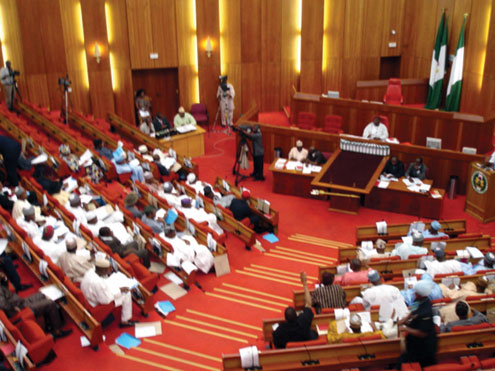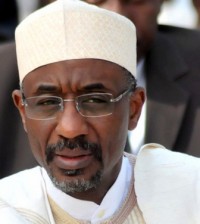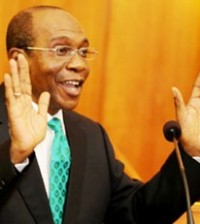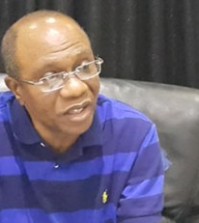‘Wonder Bank’ makes a volte-face, challenges tribunal’s jurisdiction
IT was a surprise twist of event at the Investment and Securities Tribunal (IST) during the report of settlement of the case brought by 14 representatives of investors of Nospetco Oil and Gas Limited against the Security and Exchange Commission (SEC), the Central Bank of Nigeria (CBN) and the company also known as ‘Wonder Bank’ when its counsel, Abubakar Shamshudeen of Ricky Tarfa chambers, made a volte-face and announced the decision of his chambers to opt out of the peace pact initiated by claimants counsel, Mr. Debo Adeleke and challenged the jurisdiction of the Tribunal to entertain the matter.
Presiding Chairman of the panel, Justice Salihu Usman had earlier granted leave to parties to explore the idea of settling out of court, saying it was commendable since the entire philosophy of Nigerian jurisprudence hinges on justice and peaceful settlement.
He also directed the leadership of the investors’ forum to take up an advertorial in three major national dailies informing all the investors to register with the group, as well as, to make a complete compilation of all investors list. All the parties earlier agreed and complied with the directive.
Adeleke told the Tribunal that in strict compliance to its directive, the investors had taken the publications in three national dailies and that the response was so enormous that they (the investors) would be asking for a short adjournment to complete the compilation process.
But Shamshudeen surprisingly objected that move and directed the attention of the Tribunal to his application dated November 25, 2010, challenging the jurisdiction of the Tribunal to adjudicate on the matter since according to him, it was not within its statutory powers to do so. Unable to dissuade him from moving the application, the Tribunal allowed him after it (the Tribunal) has sought the position of Mr. Adeleke, who expressed willingness to respond immediately to the third respondent’s application instead of taking a new date, which might continue to delay the matter.
Moving his application, Shamshudeen said he is contesting the jurisdiction of the court on the ground that the subject matter of the suit is a simple contract and not securities issues, which the Tribunal is empowered to adjudicate on. He said, “the third respondent is not listed in the capital market and so the Tribunal has no authority to adjudicate on the matter and we urge the Tribunal to so hold.”
In his response, Adeleke contended with all the submissions of the third respondent’s counsel and informed the Tribunal that his objection is supported by a 17- paragraph affidavit deposed to by Barrister Samuel Okechukwu of his chambers dated December 13, 2010 and expressed his willingness to adopt his written address in support of his reply.
Adeleke, who spoke passionately about the sufferings of the claimants, some of whom, he said are suffering without the benefit of reaping from their investment under the custody of the second respondent (the CBN), however punctured the argument of the third respondent’s counsel by drawing the Tribunal’s attention to some provisions of the Investment and Securities Act, which empowers them to adjudicate on the matter. He contended that the transaction was purely and investment and not a contract.
He said, “on the issue of the jurisdiction, section 284 (1) (f) of the Investment and Securities Act empowers the Tribunal to adjudicate on disputes arising from the management, operations and administrations of collective investment schemes.
“The Court should dismiss the third respondent’s applicants notice of preliminary objection and determine the issues raised in favour of the applicants.”
However, counsels to the first and second respondents, Security and Exchange Commission (SEC) and the Central Bank of Nigeria (CBN), Victor Adedipekun and Loretta Onyenyionwu respectively did not oppose the application. The matter was adjourned to April 1, 2011 for ruling on jurisdiction.
The applicants had dragged the respondents to the IST praying the Tribunal to declare that the refusal of the first respondent (SEC) to direct the second respondent (CBN) to release their fund it salvaged from the ‘wonder bank’ to them on demand was contrary to its statutory duty.
Source : Guardian








